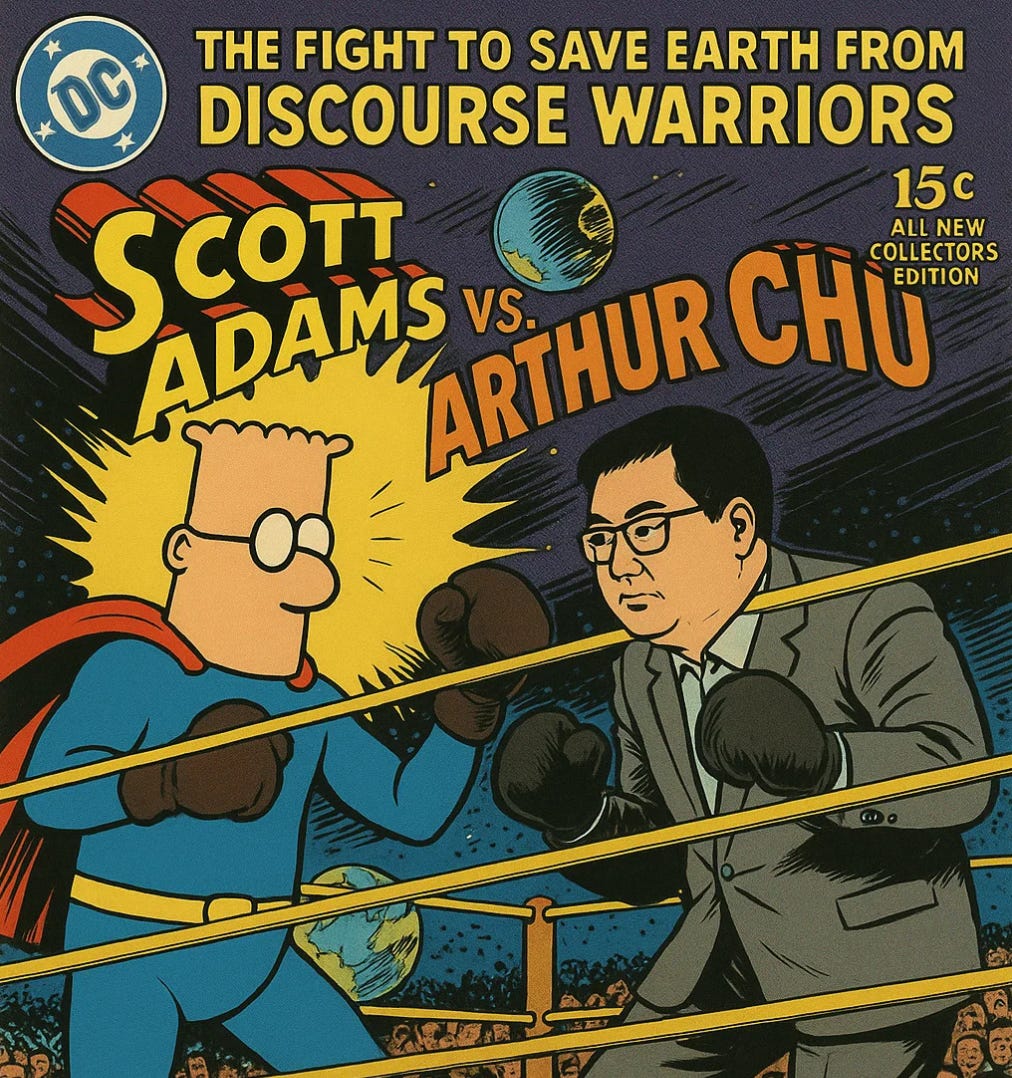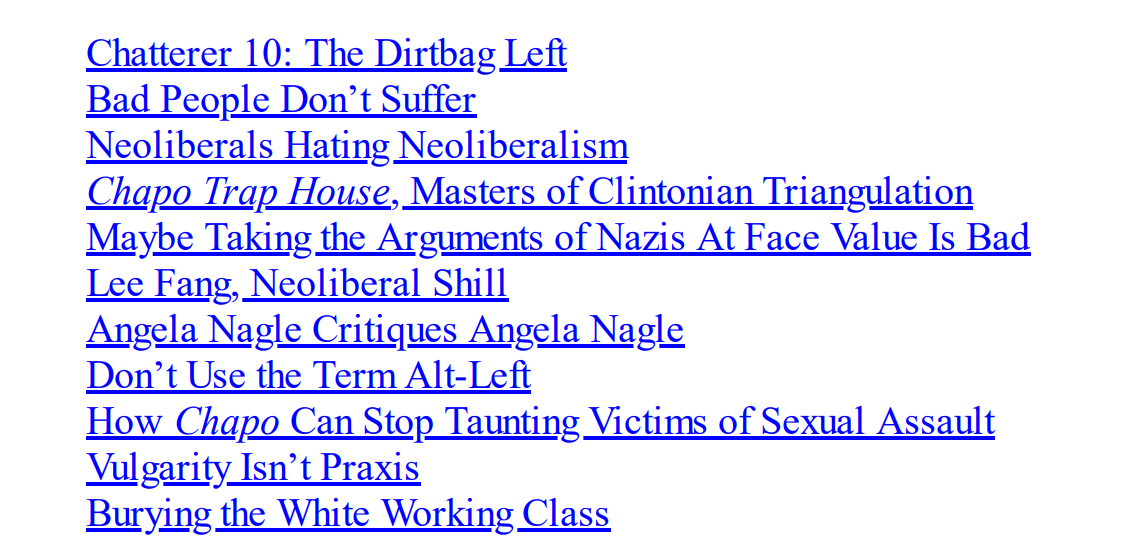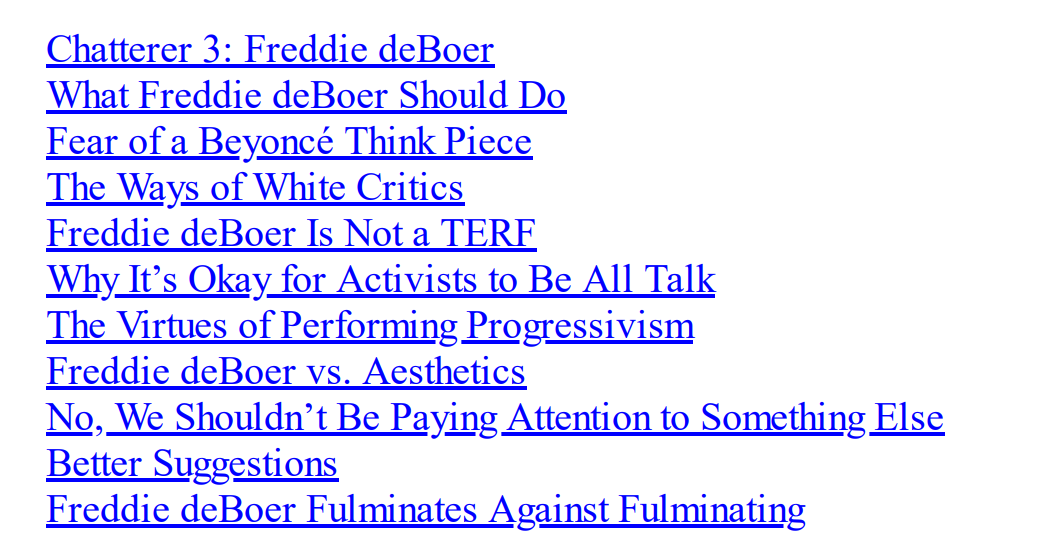The Work of the Discourse Wars
Read on to discover who struck it rich, who faded into obscurity, and what's left of our fractured discourse
In one completely memory-holed oh-so-late-2010s Twitter moment, someone from Chapo Trap House1 retweeted a post from journalist Will Sommer. Sommer had posted about how cultural critic Noah Berlatsky had written Chattering Class Wars, a book of short essays2 covering online feuds and pundits that devoted "5-10 chapters each" to dissecting CTH as well as writers Freddie deBoer and Jesse Singal.
This bit of arcane social media trivia captures the self-referential, feud-driven nature of what some call the "Discourse Wars" of the 2010s. The decade saw an unruly clash of commentators, bloggers, podcasters, and journalists who sparred daily over culture and politics on emerging platforms. Many of these figures rose to prominence through blogs and Twitter beef, then turned controversy into cash via podcasts, Patreons, and Substack newsletters.
What a few winners among the chattering class discovered was that outrage pays extraordinarily well. Research into the financial data of these top-tier culture wars 2.0 (3.0?) commentators reveals a pattern: controversial departures from mainstream institutions frequently led to exponential revenue growth through direct audience monetization. The most successful figures transformed perceived "cancellations" or repeated attacks from the "recently-canceled" or the "alt-right" into seven-figure media businesses, often earning 10x their previous institutional salaries through an impressive combination of empire building and online crybullying.
Keep reading with a 7-day free trial
Subscribe to Oliver Bateman Does the Work to keep reading this post and get 7 days of free access to the full post archives.





